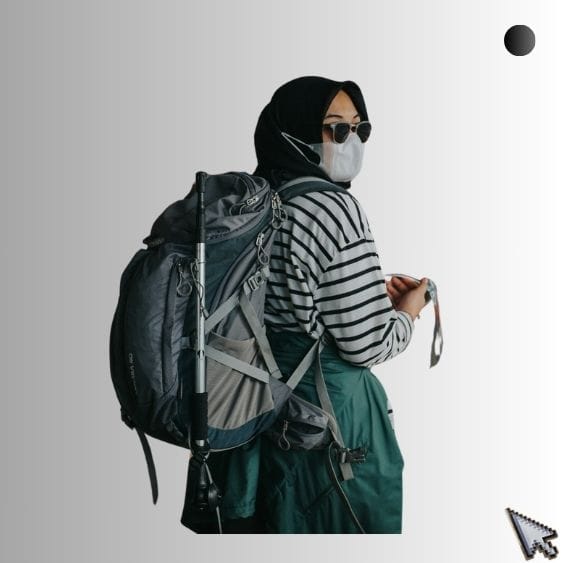When it comes to health emergencies, being prepared is half the battle.
Having a well-stocked medical supply at home can make a significant difference in managing minor injuries or illnesses and can be vital while waiting for professional medical help during more serious situations.
This post will walk you through the essential medical supplies you should keep on hand to ensure you're prepared for any health-related incident.
Key Takeaways:
- A well-stocked home medical kit can help you respond effectively to common injuries and emergencies.
- Knowing how to use the supplies in your medical kit is as important as having them.
- Regularly check and replenish your medical supplies to maintain readiness for any situation.
Essential First Aid Supplies
Every home should have a basic first aid kit that includes items like adhesive bandages, antiseptic wipes, and sterile gauze pads. These supplies are crucial for treating minor cuts, scrapes, and burns.
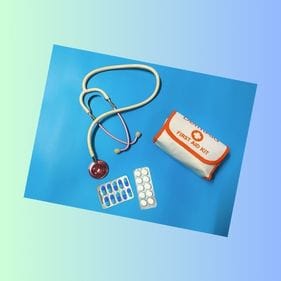
- Ensure you have various sizes of bandages to cover different wound sizes and shapes.
- Antiseptic wipes or sprays are necessary to clean wounds and prevent infection.
- Gauze pads can be used to stop bleeding and protect the injured area.
Medications to Keep on Hand
Over-the-counter medications can alleviate symptoms of common ailments such as pain, fever, allergies, and digestive issues.

- Pain relievers like ibuprofen or acetaminophen should be readily available to reduce fever and relieve pain.
- Antihistamines are useful for allergic reactions, while antacids can help with upset stomachs.
*Remember to check expiration dates and keep medications out of reach of children.
Tools for Health Monitoring
Investing in health monitoring tools like a non-contact infrared thermometer and a blood pressure cuff can help you keep track of vital signs at home.
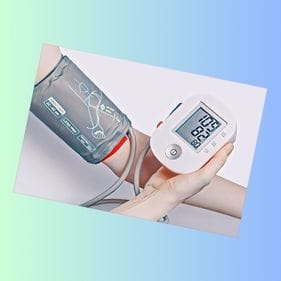
- A reliable thermometer is indispensable for detecting fevers, which can be a symptom of infection or other health issues.
- A blood pressure cuff allows you to monitor your blood pressure, which is crucial for individuals with hypertension or heart conditions.
Wound Care Essentials
Proper wound care prevents infections and promotes healing.
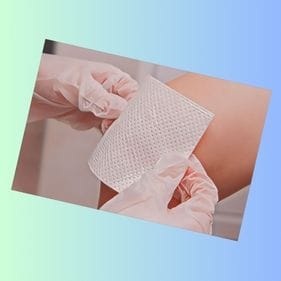
- In addition to bandages and antiseptics, your kit should include antibiotic ointment to apply to wounds before bandaging.
- Hydrogen peroxide or saline solution is ideal for cleaning wounds, and adhesive tape is necessary to secure gauze or bandages.
- Tweezers can help remove debris from wounds or for splinter removal.
Supplies for Sprains and Strains
Sprains and strains are common injuries that can be managed at home with the right supplies.
- Elastic bandages or wraps can provide support and reduce swelling.
- Cold packs are essential for reducing inflammation immediately after an injury.
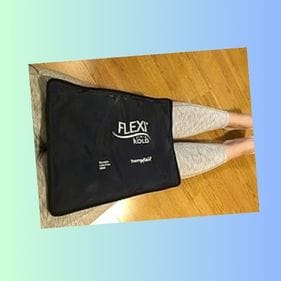
- Heat packs can help relax and soothe muscles during the recovery phase.
Allergy Management
For those with allergies, having antihistamines and nasal sprays in your medical kit is crucial.
In cases of severe allergies, an epinephrine auto-injector (EpiPen) may be necessary and should be readily accessible.

*Always consult with a healthcare provider about the appropriate medications and dosages for your specific allergies.
Digestive Health Items
Digestive issues can strike unexpectedly, so it's wise to have supplies like
- antidiarrheal medications,
- laxatives, and
- electrolyte solutions.
These can help manage symptoms of diarrhea, constipation, and dehydration, respectively.
*Probiotics are also beneficial for maintaining digestive health and can be stored as part of your medical supplies.
Respiratory Health Supplies
For those with respiratory conditions such as asthma or chronic bronchitis, having a rescue inhaler or nebulizer at home is essential.
Additionally, over-the-counter cough suppressants and expectorants can help manage symptoms of a cold or flu.
Humidifiers can also provide relief from congestion and dry air, especially during winter months.

Pediatric Supplies
If you have children, your home medical kit should include pediatric dosages of medications, such as children's acetaminophen or ibuprofen.
Oral rehydration solutions are important for managing dehydration in sick children.
*Additionally, having a variety of kid-friendly bandages and a soothing ointment for bug bites or rashes can make treating minor injuries less stressful for both parent and child.
Emergency Preparedness Items
In the event of a more serious emergency, items like a CPR mask, a tourniquet, and emergency blankets can be lifesaving.
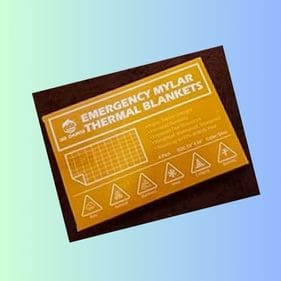
*It's also wise to include a list of emergency contacts, including family members, doctors, and local emergency services, within your medical supplies.
**Ensure everyone in the household knows where the medical supplies are stored and how to use them.
Your Takeaway
Being prepared with a well-stocked medical supply kit at home is essential for handling minor health issues and can be critical in emergencies.
This guide has outlined the basic and practical medical supplies, including first aid essentials, medications, health monitoring tools, and specialized items for allergies, digestive and respiratory health, pediatric care, and emergency preparedness.
**Remember to familiarize yourself with the use of these items and keep them in an accessible location.
FAQ Section
Q: How often should I check and replenish my home medical supplies?
A: It's a good practice to check your medical supplies every six months, replacing any expired medications and replenishing used items.
Q: Where is the best place to store my home medical supplies?
A: Store your medical supplies in a cool, dry place that is out of reach of children but easily accessible to adults in case of an emergency.
Q: Can I customize my home medical kit based on my family's specific health needs?
A: Absolutely. It's important to tailor your home medical kit to the specific health conditions and needs of your family members, including any prescription medications or devices they may require.



